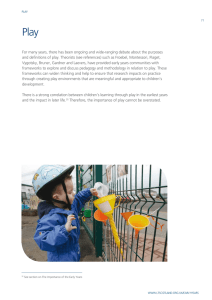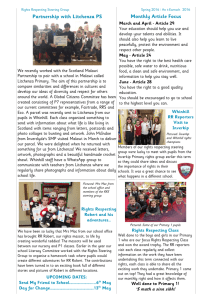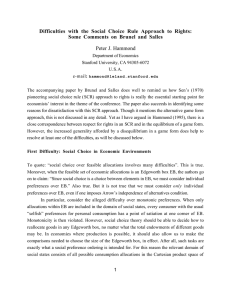Respect
advertisement
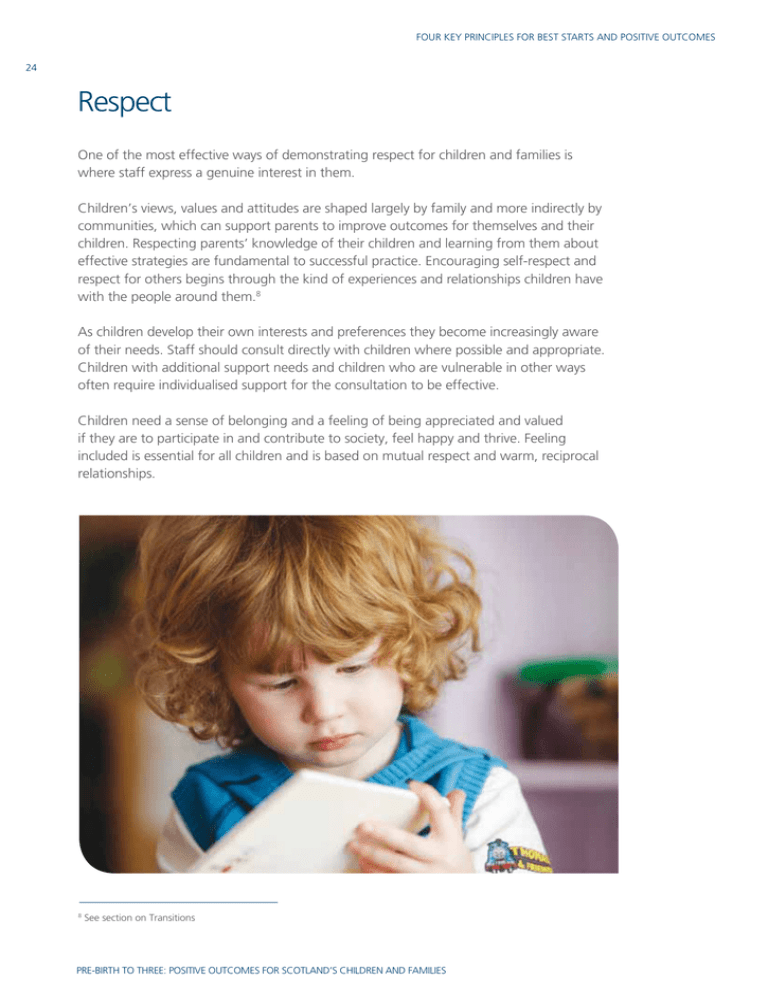
four key principles for best starts and positive outcomes 24 Respect One of the most effective ways of demonstrating respect for children and families is where staff express a genuine interest in them. Children’s views, values and attitudes are shaped largely by family and more indirectly by communities, which can support parents to improve outcomes for themselves and their children. Respecting parents’ knowledge of their children and learning from them about effective strategies are fundamental to successful practice. Encouraging self-respect and respect for others begins through the kind of experiences and relationships children have with the people around them.8 As children develop their own interests and preferences they become increasingly aware of their needs. Staff should consult directly with children where possible and appropriate. Children with additional support needs and children who are vulnerable in other ways often require individualised support for the consultation to be effective. Children need a sense of belonging and a feeling of being appreciated and valued if they are to participate in and contribute to society, feel happy and thrive. Feeling included is essential for all children and is based on mutual respect and warm, reciprocal relationships. 8 See section on Transitions PRE-BIRTH TO THREE: POSITIVE OUTCOMES FOR SCOTLAND’S CHILDREN AND FAMILIES four key principles for best starts and positive outcomes 25 Very young children have views and preferences. They benefit from being provided with opportunities to resolve situations through expressing their feelings and being listened to. Children should be consulted naturally in decision making, for example about resources and snacks. Children gain confidence and feel respected when they can see that their opinions shape and inform decisions that affect them. The National Care Standards (Scottish Government 2007, p 21) recommends that all staff ensure children and young people, parents and colleagues are treated with respect and in a fair and just way. Key considerations for establishing respect include: • valuing diversity, in language, ethnic background, faith and family circumstances • respecting children’s values and social experiences • being sensitive to and understanding differences, ensuring fairness, equality and opportunity • having a sound knowledge and understanding of the UNCRC. www.LTScotland.org.uk/earlyyears
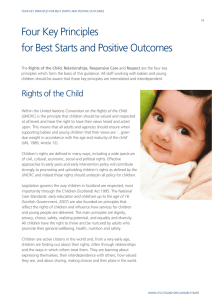


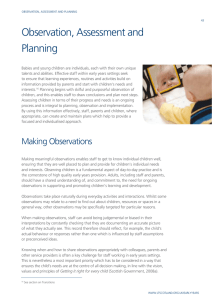
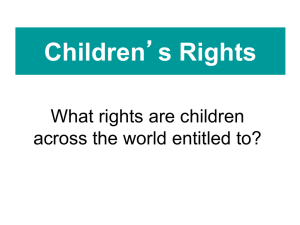
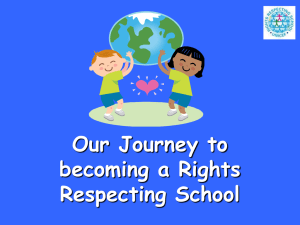

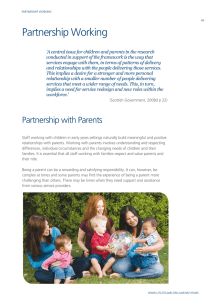
![What is cooperation? “getting along” o [Not fighting]](http://s2.studylib.net/store/data/015676631_1-98b0d3ea59c9c23c897e78fcf6af183c-300x300.png)
